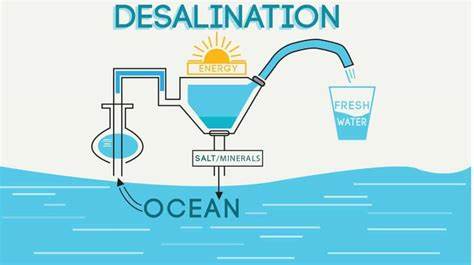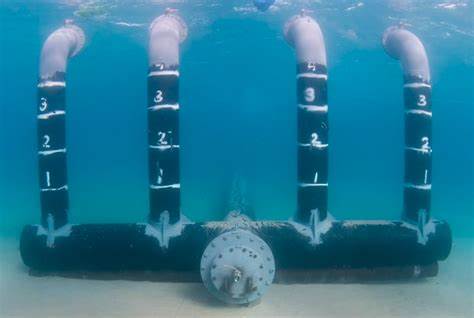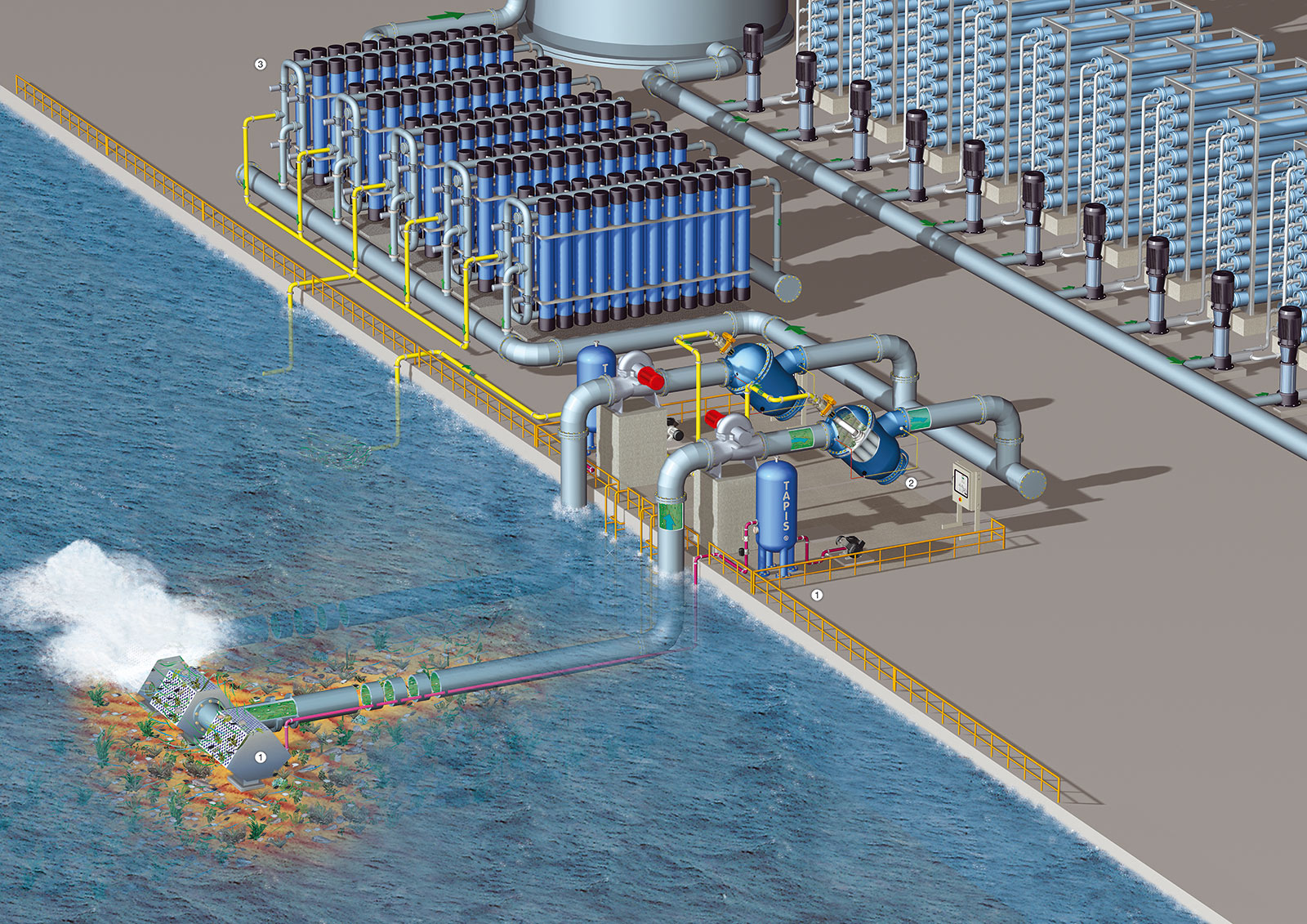can sea water desalination save the world?
With the growth of global population and advancement of industrialization, the increasing scarcity of freshwater resources has become a global problem. In this case, seawater desalination technology is considered to be a key way to solve the problem of water shortage. However, whether seawater desalination can save the world remains to be seen.
The potential of sea water desalination technology
Sea water desalination technology is considered one of the important means to solve the problem of fresh water resource shortage and can provide large amounts of fresh water resources to all parts of the world. Since about 70% of the earth's surface is ocean, sea water desalination technology is expected to solve the problem of fresh water resource shortage. Through sea water desalination technology, we can convert seawater into usable freshwater resources to meet the growing demand for water. This technology has been widely used in some areas, providing a stable source of water for local areas.
Challenges and issues of seawater desalination
However, seawater desalination technology also faces some challenges and problems. First, the seawater desalination process requires a large amount of energy support, which may lead to increased energy consumption and increased environmental burden. Secondly, seawater desalination plants may produce waste and toxic chemicals, causing pollution to the surrounding environment. In addition, the seawater desalination process may also cause irreversible effects on the marine ecosystem, affecting the survival and reproduction of marine life.

What is the development and application of seawater desalination technology?
After understanding the potential and challenges of seawater desalination, let us have an in-depth understanding of the development and application of seawater desalination technology.
Technology development and innovation:
Sea water desalination technology has made tremendous progress over the past few decades. From the initial distillation method to the current reverse osmosis technology, sea water desalination technology continues to develop and innovate, improving desalination efficiency and water quality. In the future, with the advancement of science and technology and the optimization of processes, sea water desalination technology may become more efficient, energy-saving and environmentally friendly.
Application areas and regional demonstrations:
seawater desalination technology has been widely used around the world. In addition to solving the problem of freshwater resource shortage, seawater desalination technology can also be applied to other fields, such as agricultural irrigation, industrial production and urban water supply. Demonstration projects have been established in some regions to solve local water shortage problems through seawater desalination technology, providing reference for other regions.

Can seawater desalination technology solve the global water shortage problem?
Application scope of seawater desalination technology
Seawater desalination technology plays an important role in solving the global water shortage problem. Many countries and regions are actively promoting seawater desalination projects to alleviate tensions over freshwater resources. Seawater desalination technology can not only be used in urban water supply, industrial water supply, etc., but also in agricultural irrigation and other fields, providing reliable fresh water resources for all walks of life.
Limitations of Sea water desalination technology
Although sea water desalination technology has potential in solving water shortage problems, its application also has certain limitations. First, sea water desalination technology requires a large amount of capital investment and energy support, and not all countries and regions can afford such costs. Secondly, seawater desalination technology may have adverse effects on the local ecological environment and requires strict environmental assessment and supervision. Therefore, in the process of promoting seawater desalination technology, it is necessary to balance the relationship between economic benefits and environmental protection.

What is the environmental impact of seawater desalination technology?
Environmental impact of seawater desalination technology
While seawater desalination technology solves the problem of water shortage, it will also have a certain impact on the environment. First, the seawater desalination process requires a large amount of energy support, which may increase greenhouse gas emissions and exacerbate the problem of global warming. Secondly, seawater desalination plants may produce wastewater and toxic chemicals, causing pollution to the surrounding marine ecosystem. In addition, seawater desalination technology may affect the habitats and living conditions of marine life, causing irreversible effects on the marine ecosystem.
Environmental protection measures for sea water desalination technology
In order to reduce the environmental impact of sea water desalination technology, a series of environmental protection measures need to be taken. First, sea water desalination plants need to strictly control the discharge of wastewater and toxic chemicals to ensure that they do not pollute the surrounding environment. Secondly, sea water desalination technology should strengthen research on energy conservation and environmental protection technologies to reduce its impact on the environment. At the same time, government departments and all sectors of society should strengthen supervision and management to promote the sustainable development of sea water desalination technology and achieve a win-win situation of economic benefits and environmental protection.
Summarize
Sea water desalination may be the key to avoiding global water shortages, but it will take time. Clean fresh water is vital to sustaining human life. However, seawater desalination plants also bring environmental pollution problems. The seawater desalination process produces waste and toxic chemicals that are harmful to wildlife and the earth. The process also increases the salt content in seawater, which affects fish. Seawater desalination plants that use diesel also produce greenhouse gas emissions.






